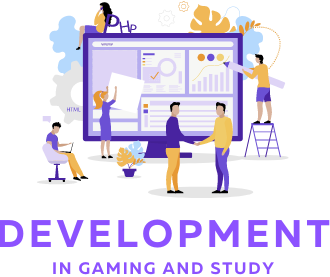Online gaming has grown exponentially over the years, becoming a major part of modern entertainment. What began as simple, competitive multiplayer games has transformed into a massive, immersive experience that appeals to millions worldwide. Today, online gaming is not just a pastime but a lifestyle for many, shaping social interactions, entertainment, and even professional careers.
One of the biggest factors contributing to the rise of online gaming is the increased accessibility of high-speed internet. Faster connections have enabled more players to enjoy seamless multiplayer experiences, whether on PC, consoles, or mobile devices. Titles like Fortnite, League of Legends, and Call of Duty: Warzone have seen explosive growth, partly due to the ability to connect with players globally in real time. The result is a shift from local, isolated gaming sessions to an expansive global community.
The accessibility of online gaming has also made it a social hub. Unlike traditional solo gaming experiences, multiplayer online games offer players the chance to team up with friends, or even make new ones, while competing in real-time challenges. Voice chat and text messaging within these games foster communication, strategy, and friendships that extend beyond the screen. For many, gaming has become a way to bond with friends and family, even when separated by great distances. Online gaming communities are vibrant and dynamic, allowing people to form lasting connections over shared interests in specific genres or titles.
In addition to social benefits, gaming culture has given rise to new forms of entertainment. The esports industry, in particular, has brought ambon4d professional gaming into the mainstream. Competitive gaming has evolved into a multi-billion-dollar industry, with players, coaches, and teams gaining recognition, sponsorships, and large cash prizes. Major tournaments for games like Dota 2, League of Legends, and Overwatch now attract thousands of fans and millions of viewers online. As esports continue to grow, professional gaming careers have become viable, leading to the rise of gaming influencers and streamers who broadcast their gameplay to large audiences.
Beyond competition, the world of online gaming offers a vast array of experiences, including immersive virtual worlds and role-playing games (RPGs). Games like World of Warcraft and Final Fantasy XIV allow players to escape reality and live out adventures in sprawling, interactive digital universes. This level of immersion has contributed to gaming’s cultural significance, with players spending hundreds, if not thousands, of hours exploring these online spaces.
The evolution of mobile gaming is another major shift in the gaming industry. Smartphones have made gaming available to everyone, regardless of location or financial resources. With mobile games like Candy Crush, Clash of Clans, and PUBG Mobile, players can enjoy gaming on the go, turning even mundane moments into opportunities for entertainment. Mobile gaming also supports a free-to-play model, where games are accessible without an upfront cost, generating revenue through in-game purchases.
As the technology behind online gaming continues to advance, new innovations are changing the way players interact with games. The introduction of virtual reality (VR) and augmented reality (AR) has the potential to make gaming even more immersive. With VR headsets like the Oculus Rift and PlayStation VR, players can physically step into a digital world, interacting with their environment in a more intuitive way. Meanwhile, AR games like Pokémon GO have brought virtual experiences into the real world, creating new opportunities for gameplay that blends both realities.
With the growth of cloud gaming, players no longer need powerful hardware to enjoy cutting-edge gaming experiences. Cloud gaming services like Google Stadia and NVIDIA GeForce Now allow players to stream games directly from the cloud to their devices, opening the door for more people to experience high-quality games on devices such as smartphones, smart TVs, and low-end PCs. This technology removes the barrier of expensive gaming equipment, democratizing access to premium gaming experiences.
Despite all its benefits, online gaming is not without challenges. The issue of gaming addiction has raised concerns, especially as games become more engaging and time-consuming. Some players may find it difficult to balance gaming with other life responsibilities, which can lead to negative consequences for mental health and relationships. Additionally, the rise of toxic behavior and cyberbullying within online communities has led to calls for stricter moderation and more inclusive gaming environments.
In conclusion, online gaming has evolved into a central part of modern life, providing entertainment, social interaction, and career opportunities. The advancements in technology, accessibility, and game design continue to shape the industry, making gaming an increasingly significant cultural force. As the gaming landscape continues to expand, it will remain a dynamic and influential part of our digital world, offering new ways for people to connect, compete, and experience entertainment.
